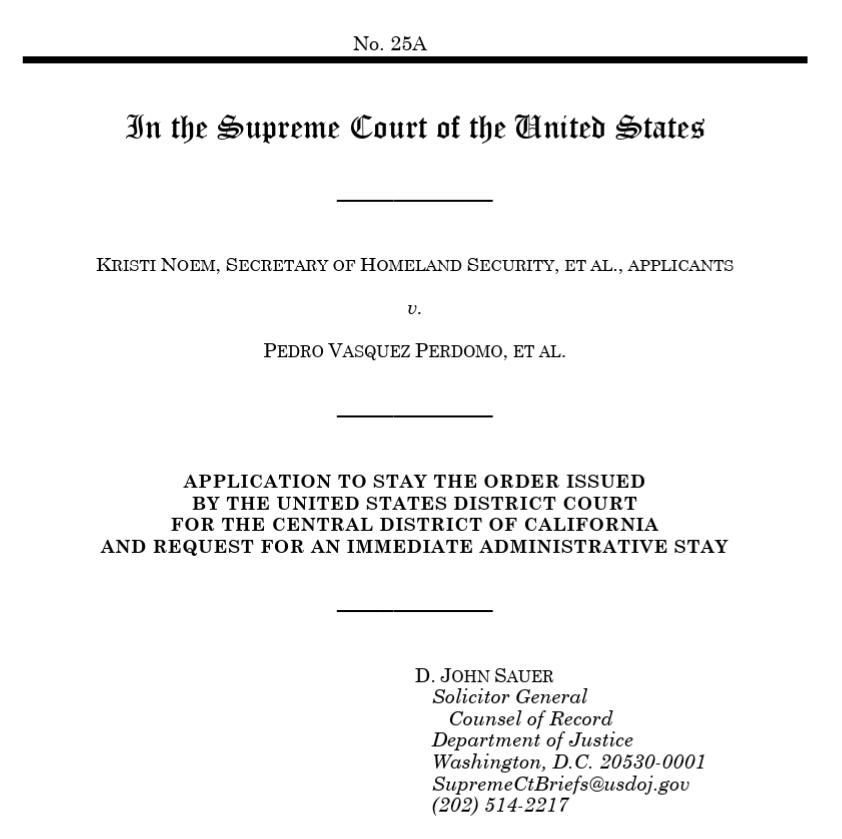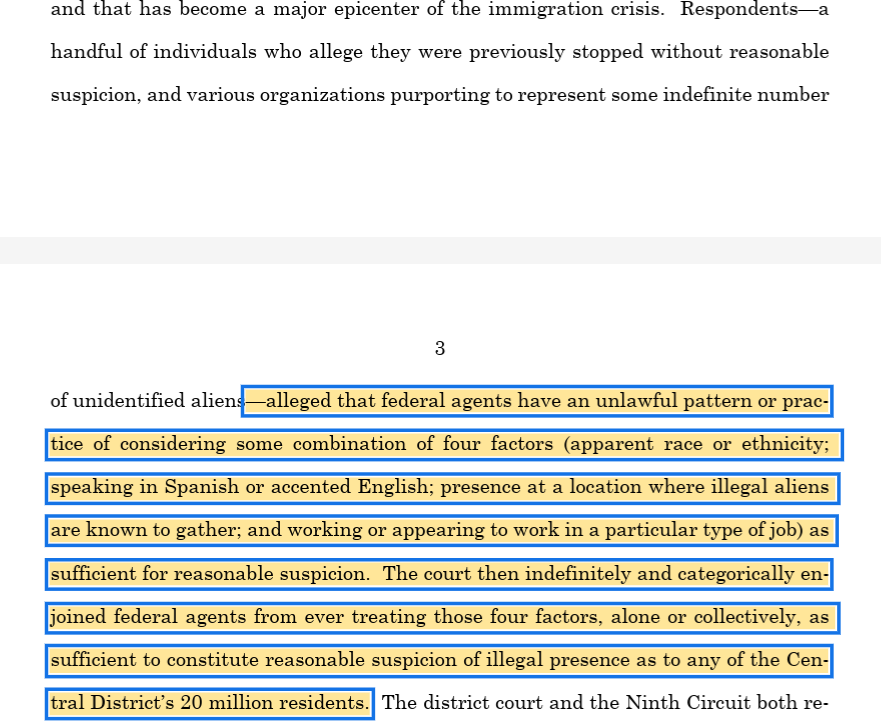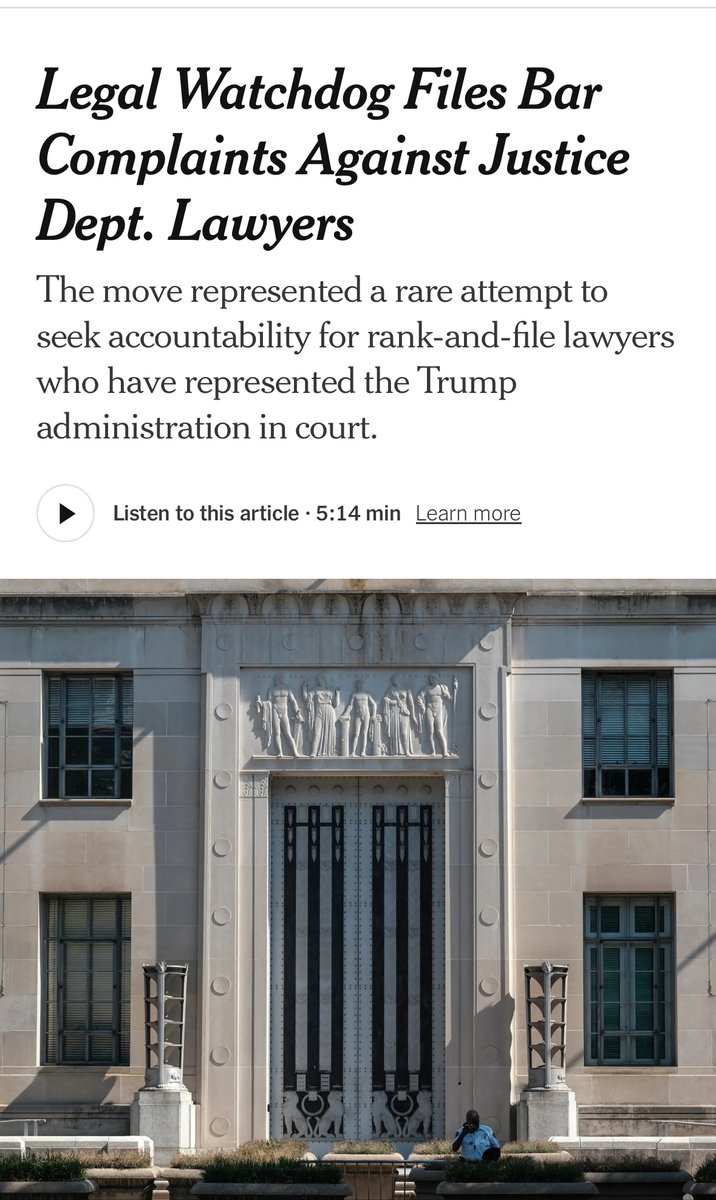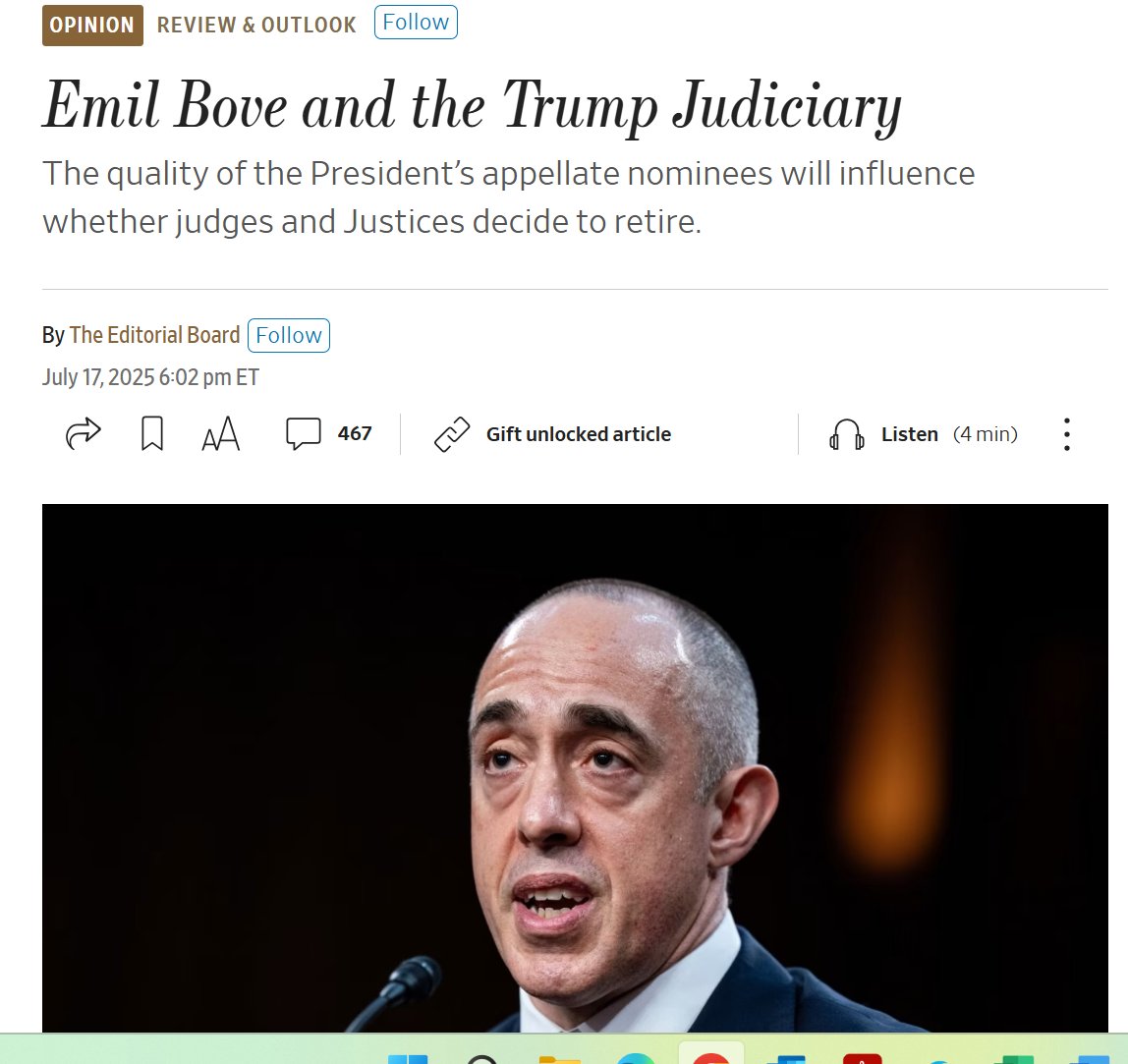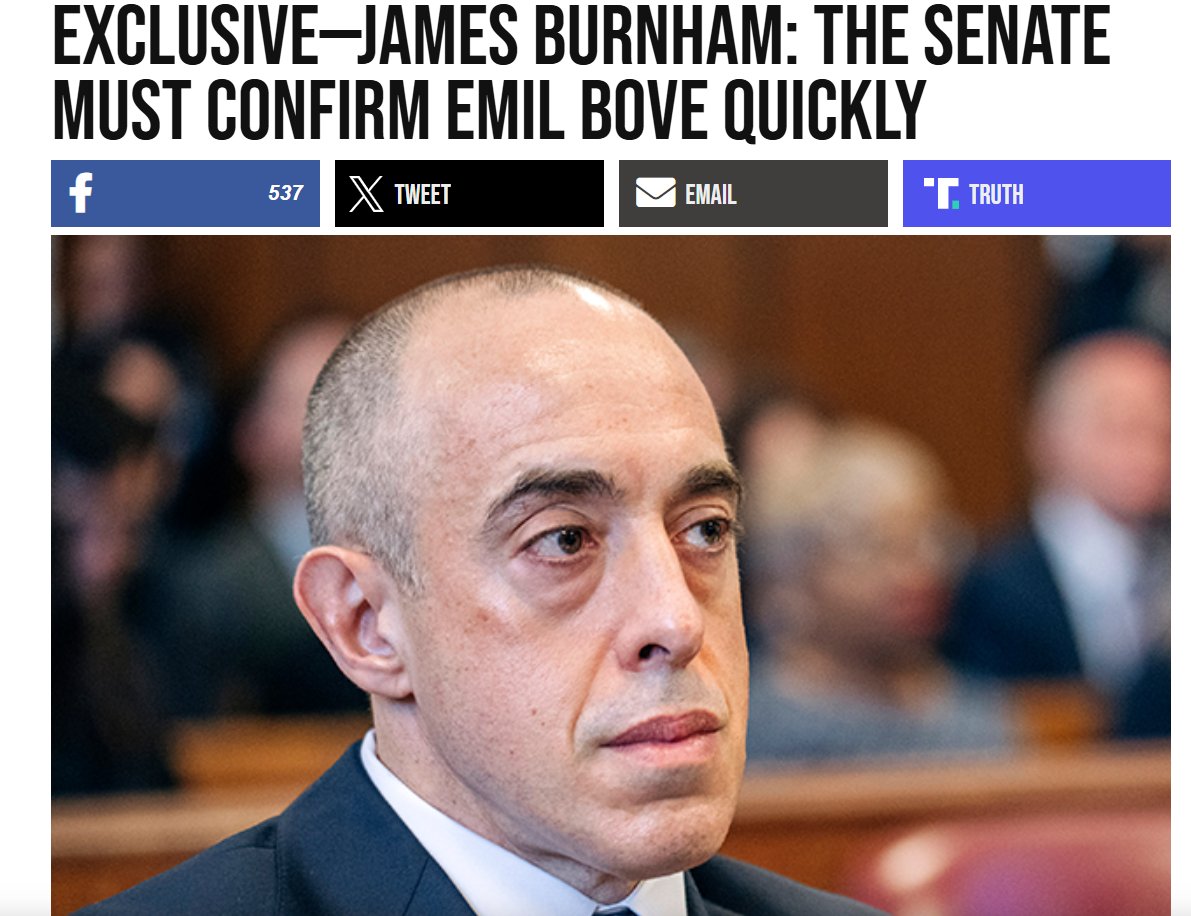The D.C. Circuit released a significant opinion today in one of the earliest major @DOGE cases--the litigation over the reduction of USAID. It's another big legal win for @realDonaldTrump and @DOGE. It also has broader implications, as I'll explain. 1/ 

To recap, there were two major challenges to the winddown of USAID--one regarding terminated employees, the other regarding terminated grants and contracts. Both have now resolved largely in the Administration's favor. 2/
The Administration won the employee case in the district court before Judge Nichols, a Trump Appointee from 45. (Judge Nichols entered a TRO but ultimately denied a PI, which effectively ended the case.) The terminations took effect and that case has been out of the news. 3/
The other major challenge was to the Administration's termination of billions of dollars in USAID grants and contracts. This case is more complex. It included a trip to the Supreme Court--one of the first in the Administration--threats of contempt, the works. 4/
It is now effectively over. The district court ordered that USAID make payments for all work previously performed but did *not* interfere with prospective terminations of contracts and grants. Largely a win for the Administration, but it had a catch. 5/
Though the district court did not interfere in the terminations, it enjoined the Administration from "impounding" funds Congress appropriated to USAID for foreign aid. Impoundment basically means not spending appropriated funds. 6/
Impoundment is a hot topic that @RussVought47 and @MarkPaoletta at OMB--both extremely knowledgeable and determined cost-cutters--have thought about *a lot.*
Mark and his Deputy at OMB Dan Shapiro have a scholarly article on the topic: 7/americarenewing.com/the-presidents…
Mark and his Deputy at OMB Dan Shapiro have a scholarly article on the topic: 7/americarenewing.com/the-presidents…
OK back to USAID. The upshot of Judge Ali's injunction was that he was ordering the Administration to spend every dollar Congress had appropriated to USAID. In other words, he was ordering the Administration to not "impound" any funds. 8/
That's a big deal! It would judicially restrict @realDonaldTrump's discretion over how and whether to spend appropriated funds in an area--foreign affairs--where presidential power is at its zenith. 9/
Well that order is gone, at least for now. The D.C. Circuit reversed Judge Ali today, holding that the plaintiffs do not have a cause of action to litigate impoundment. Here's the key para. 10/ 
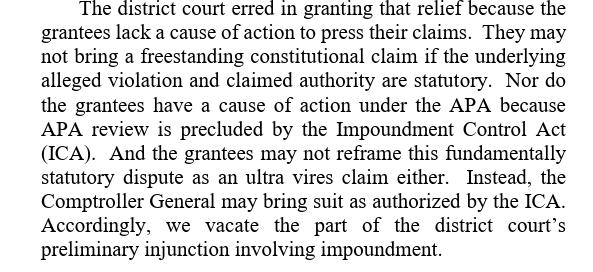
This win is important on its own, but has broader implications. The upshot is that private parties who want Government $$ cannot sue over impoundment. That *seriously* reduces litigation risk to impoundment. No flood of suits = no flood of injunctions. 11/
The DC Circuit notes that the Comptroller General has a statutory cause of action to sue. But it is far from clear that inter-branch litigation is constitutional. During Trump 45, I argued in McGahn and other cases it is not. I think the Supreme Court will agree. 12/
The Comptroller General is also a constitutional oddity--an officer the President appoints who sits inside Congress and can be removed only by joint congressional resolution. This odd office produced a famous Supreme Court case (Bowsher v Synar) that is beyond this thread. 13/
For present purposes, what matters is that Congress can remove the Comptroller General by joint resolution. Would current congressional leadership permit the CG to sue the Trump Administration over impoundment? I am skeptical, depending on the facts. 14/
If the CG doesn't/can't sue and private parties can't sue, there may never be a suit at all. This is esoteric legal procedure, but as you can see it has major substantive implications. Will be watching for the next shoe to drop. 15/
Finally, congratulations to @AGPamBondi @DAGToddBlanche Stanley Woodward @BrettShumate and the @TheJusticeDept team on another big win.
Here is the opinion:
/endmedia.cadc.uscourts.gov/opinions/docs/…
Here is the opinion:
/endmedia.cadc.uscourts.gov/opinions/docs/…
• • •
Missing some Tweet in this thread? You can try to
force a refresh


